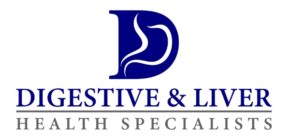Frequent belching of air from the stomach, bloating after eating or even on an empty stomach, and frequent passage of air from the rectum are signs of increased gas in the digestive tract. Gas is an inconvenient and unpleasant condition that may even cause mild abdominal pain.
On average, passage of gas in a normal person occurs 14 times a day1. Gas accumulation can occur in two ways: either by ingestion of air through the mouth or production in the gastric tract. Some diets also cause gas accumulation in the tract.
Causes of Gas
Gas naturally enters the oral cavity and is produced by certain bacteria residing in the intestine.
Bacteria break down and ferment carbohydrate diets. Causes of gas accumulation include2:
• Chewing gum or sucking on hard candy causes swallowing of air
• Drinking carbonated drinks
• Hurried drinking or eating food quickly
• Smoking
• Lying down after eating
• Inactivity
• Stress
• Eating spicy food, certain fruits and vegetables
• Food intolerance like lactose intolerance and gluten sensitivity or gluten allergy
• Certain disease conditions like irritablebowel syndrome (IBS) and gastroesophageal reflux disease (GERD)3

Belching from Stomach
Some belching can be normal after eating. Frequent belching is annoying and inconvenient. Belching is caused by too much swallowing and accumulation of air while eating or drinking. When in excess, the stomach releases this air through the esophagus. Some people are air swallowers meaning they intake a large amount of air compared to others. This can be corrected by changing lifestyle, eating less processed foods, and taking certain medications if required.
How to reduce belching?
• Avoid smoking cigars and pipes. Chewing gum, sucking hard candy, and sipping through narrow straws should also be avoided.
• Avoid foods that contain air, whipped creams, and carbonated drinks.
• Eat slowly, don't gulp down food, and drink with frequent pauses between sips.
Bloating
Bloating is a condition of swelling of the belly or abdomen due to the accumulation of gas in the GI tract. It may be a painful and can occur at inconvenient times. In addition, bloating may be associated with distention in some patients. Typically, bloating causes increased flatulence, which can also occur at very inconvenient times.
Bloating may be associated with a variety of gastrointestinal diseases. For example, it is often associated with irritable bowel syndrome (IBS) in which spasms of bowel and dysfunctions of GI tract motility occur4.
How to reduce bloating?
• Proper diagnosis is necessary through radiographic studies and endoscopy
• Eat foods that are easily digestible
• Your physician may prescribe medications that increase intestinal motility.
Passing gas through rectum
Beneficial bacteria ferment food and produce gas in the large intestine as a byproduct. Eating certain foods or vegetables can lead to increased gas production. When a patient is deficient in a specific enzyme (e.g., lactose intolerant) they can accumulate gas in the large intestine which is passed through the rectum. There are individual variations, meaning the same amount and type of foods, when eaten by different individuals, can cause belching, bloating, and passing of gas from the rectum differently.
How to reduce rectal gas?
• Avoid excessive carbohydrates
• Decrease consumption of legumes and certain vegetables detailed below
• Exercise more, drink plenty of water and adopt a healthy lifestyle5
Which foods cause gas production?
• Legumes: especially dried beans and peas, baked beans, soybeans, lima beans6
• Milk Products: milk, ice cream, cheese
• Vegetables: cabbage, broccoli, brussels sprouts, cauliflower, cucumbers, sauerkraut,kohlrabi, asparagus
• Root Vegetables: potatoes, rutabaga, turnips, radishes, onions
• Fruits: prunes, apricots, apples, raisins, bananas
• Cereals & Bread: cereals, breads, pastries, and all foods containing wheat and wheat products. Check labels
• Fatty Foods: pan-fried or deep-fried foods, fatty meats, rich cream sauces and gravies, pastries, and high-fat food. Check labels
• Liquids: carbonated beverages, fizzy medicine
Summary
Although gas is not a lethal disease or condition, it can be uncomfortable and can occur at very inconvenient times. It can also be associated with a variety of underlying digestive tract diseases. Therefore, we encourage early evaluation for proper diagnosis and management.
References
1. Hasler WL. Gas and Bloating. Gastroenterol Hepatol (N Y). 2006;2(9):654. doi:10.1007/978-1-4939-1498-2_10
2. Kurbel S, Kurbel B, Včev A. Intestinal gases and flatulence: possible causes of occurrence. Med Hypotheses. 2006;67(2):235-239. doi:10.1016/J.MEHY.2006.01.057
3. Obekli T, Akyuz F, Akyuz U, et al. Belching in Irritable Bowel Syndrome: An Impedance Study. J Neurogastroenterol Motil. 2017;23(3):409. doi:10.5056/JNM16103
4. Seo AY, Kim N, Oh DH. Abdominal Bloating: Pathophysiology and Treatment. J Neurogastroenterol Motil. 2013;19(4):433. doi:10.5056/JNM.2013.19.4.433
5. Kamboj AK, Oxentenko AS. Approach to the patient with abdominal pain, gas, and bloating. Yamada’s Textb Gastroenterol. Published online April 15, 2022:599-628. doi:10.1002/9781119600206.CH34
6. Price KR, Lewis J, Wyatt GM, Fenwick GR. Flatulence--causes, relation to diet and remedies. Nahrung. 1988;32(6):609-626. doi:10.1002/FOOD.19880320626

